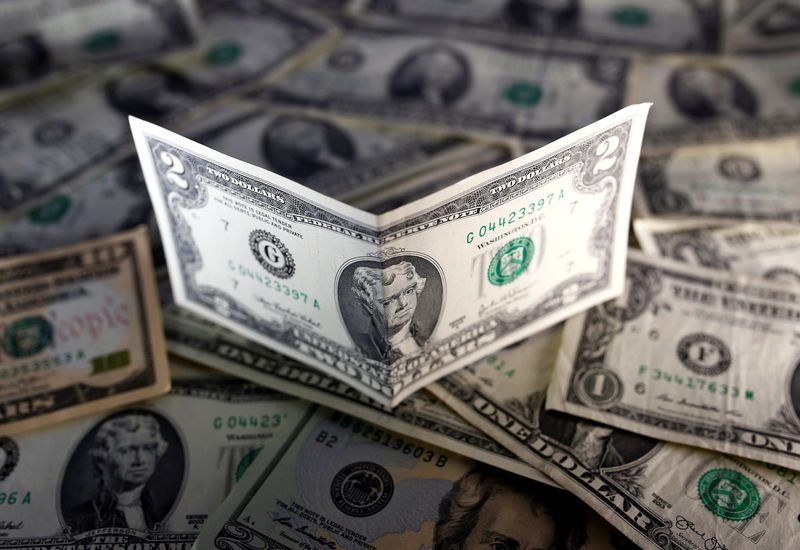By Alun John
HONG KONG (Reuters) – The dollar held near its overnight 20-year peak on Wednesday ahead of the outcome of the Federal Reserve policy meeting at which markets are pricing in an outsized 75 basis point interest rate hike as policymakers try to rein in rampant inflation.
A key U.S. currency index, which tracks its performance against six peers, was at 105.3 having hit 105.65 on Tuesday, its strongest since December 2002.
Sterling was at $1.20135 after slumping to a 15-month low versus the dollar at $1.1934 the previous day, not helped by the possibility of a new referendum on Scottish independence, while the euro was at $1.0428 just above its overnight one-month low. [GBP/]
Market pricing indicates a 99.7% chance of a 75 basis point rate hike at the Fed’s meeting which concludes later on Wednesday, according to the CME’s Fedwatch tool, up from only 3.9% a week ago.
The sharp pick up in expectations followed media reports, first by the Wall Street Journal that a bigger rate increase was on the cards after data released last week showed the U.S. consumer price index surged 8.6% in the 12 months to May, the largest year-on-year increase in four decades.
The U.S. dollar had already been gaining ground in the past few months thanks to the Fed raising rates ahead of most other major central banks, and has been given another leg up in recent weeks as investors seek safe havens fearing the economic impact of rapidly tightening financial conditions.
At least in the near term, analysts feel that the dollar has not much further to go.
“Given current aggressive market pricing, there is a risk the (Fed)is deemed ‘not hawkish enough’, pulling down U.S. interest rates and the USD modestly after the meeting,” said CBA analysts in a morning note.
“In our view, it will take more than a 75bp hike tomorrow, or a nod to a 100bp hike for the FOMC’s July meeting, to push the USD up significantly after the FOMC meeting.”
Higher U.S. rates versus rock bottom Japanese yields have been weighing on the yen, which hit a fresh 24-year low of 135.58 per dollar in early trade, before recovering to 135.05.
Expectations for higher rates have also hurt risk friendly assets such as tech stocks, while in currency markets, the Australian dollar, often seen as a proxy for risk appetite, is at $0.68950 near a one-month low.
The Aussie is down 7.9% so far this quarter, which would be its worst quarter since the first three months of 2020 when the COVID-19 pandemic hit.
The New Zealand dollar was at $0.62185 just off its two-year low of $0.6197 hit overnight.
Bitcoin, another risk friendly asset class, was down slightly, trading just under $22,000. It hit an 18-month low of $21,800 on Tuesday, also hurt by major crypto lender Celsius Network’s freezing withdrawals earlier this week.



